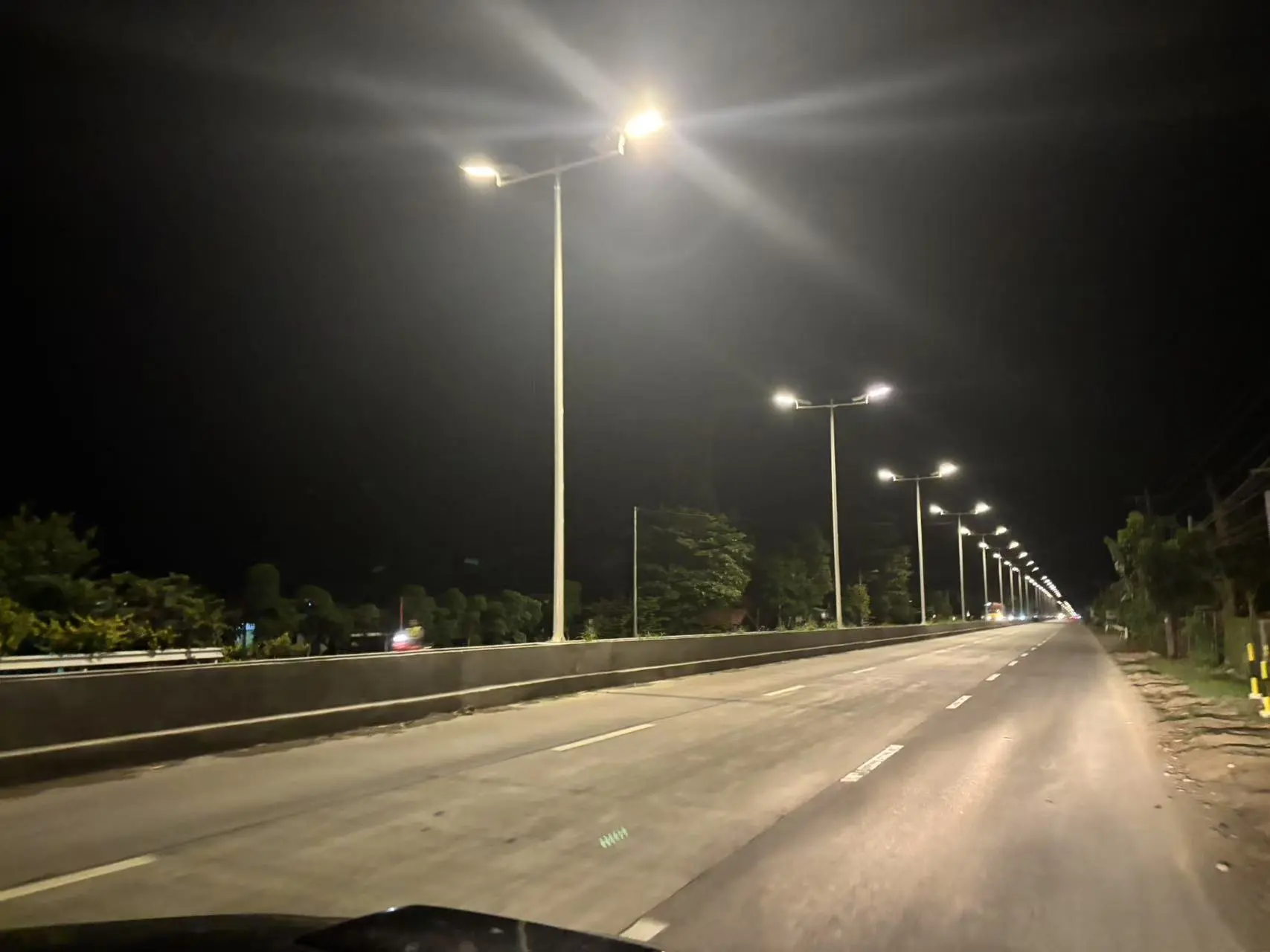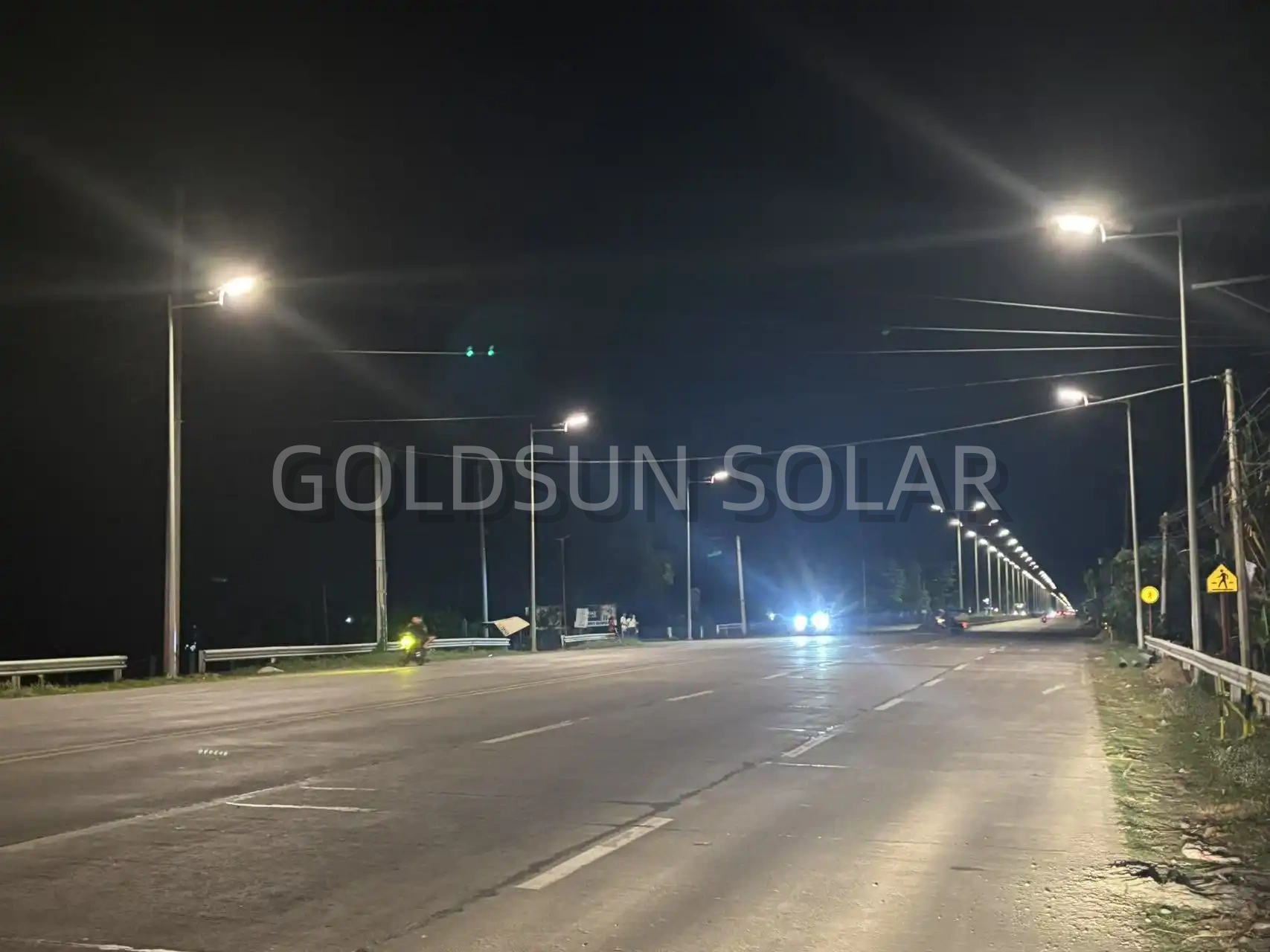Why won't my solar street lights turn on? Quick fixes & solutions
Checking the basics: Power switch and battery connections
Before diving into more complex issues, it's crucial to start with the basics. Ensure that the power switch is in the "ON" position, as it's not uncommon for switches to be accidentally turned off during cleaning or maintenance. Next, examine the battery connections. Loose or corroded connections can interrupt power flow, preventing your solar lights from functioning. Gently clean the contact points with a soft, dry cloth and ensure all connections are secure. If you notice any signs of corrosion, a mixture of baking soda and water can help remove it. Remember to dry the connections thoroughly before reassembling.
Assessing sunlight exposure and panel positioning
Inadequate sunlight exposure is a common culprit for underperforming solar lights. Evaluate the positioning of your solar panels. They should be placed in areas that receive direct sunlight for most of the day, ideally facing south in the Northern Hemisphere or north in the Southern Hemisphere. Obstructions like overhanging branches, nearby buildings, or even accumulated debris can significantly reduce solar energy collection. Consider trimming vegetation or relocating your solar lights to optimize sunlight exposure. Additionally, the angle of your solar panels plays a crucial role in efficiency. Adjusting the tilt of your panels seasonally can help maximize energy absorption throughout the year, ensuring your solar street lights outdoor operate at peak performance.
How to clean solar panels for maximum sunlight absorption?
Safe cleaning techniques for solar panels
Maintaining clean solar panels is essential for optimal performance of your outdoor solar lighting system. Begin by gently removing loose debris with a soft brush or leaf blower. For a more thorough cleaning, use a non-abrasive sponge or soft cloth dampened with distilled water and a mild, phosphate-free soap. Avoid using harsh chemicals or abrasive materials that could scratch the panel surface. Work in small sections, rinsing thoroughly with clean water to prevent soap residue. For hard-to-reach panels, consider using a telescoping cleaning tool designed specifically for solar panels. Always clean your panels during cooler parts of the day to prevent rapid evaporation, which can leave water spots.
Frequency and timing of panel maintenance
The frequency of solar panel cleaning depends on your local environment. In dusty or pollen-heavy areas, monthly cleaning may be necessary, while in cleaner environments, quarterly maintenance might suffice. Pay special attention to cleaning after storms or during seasons with high pollen counts. Early morning is often the best time for cleaning, as the panels are cool and morning dew can help soften dirt. Regularly scheduled maintenance not only ensures maximum sunlight absorption but also allows you to inspect for any damage or wear. By keeping a consistent cleaning schedule, you'll maintain the efficiency of your solar street lights outdoor and extend their operational lifespan.
Common problems with outdoor solar lighting & how to prevent them
Addressing battery and charging issues
Battery-related problems are among the most frequent issues with solar lighting systems. Over time, batteries can lose their capacity to hold a charge, resulting in shorter illumination periods or complete failure. To prevent this, opt for high-quality, rechargeable batteries designed for solar applications. Regularly check the battery compartment for signs of corrosion or leakage. If you live in an area with extreme temperatures, consider using lithium-ion batteries, which perform better in a wider range of conditions compared to traditional lead-acid batteries. Additionally, ensure that your solar panels are clean and properly positioned to maximize charging efficiency. Some advanced solar street lights outdoor come with smart charging systems that optimize battery life by regulating charge and discharge cycles.
Dealing with moisture and weather-related damage
Outdoor solar lights are exposed to various weather conditions, making them susceptible to moisture-related issues. Water ingress can lead to short circuits, corrosion, and reduced performance. To prevent these problems, regularly inspect the seals and gaskets on your solar light fixtures. Replace any damaged or degraded seals promptly. When installing new solar lights, apply a small amount of silicone sealant around connection points for added protection. In areas prone to flooding or heavy rain, consider elevating your solar lights or using models specifically designed for wet environments. During winter, clear snow and ice from solar panels to ensure continued charging. By taking these preventative measures, you can significantly reduce weather-related damage and maintain the longevity of your solar lighting system.
Conclusion
Maintaining your outdoor solar lights doesn't have to be a daunting task. By understanding common issues and implementing regular maintenance routines, you can ensure your solar street lights outdoor continue to illuminate your spaces efficiently and reliably. Remember to check connections, clean panels regularly, and protect your lights from harsh weather conditions. If you encounter persistent issues or need expert advice on solar lighting solutions, don't hesitate to reach out to professionals. At Yangzhou Goldsun, we're committed to providing top-quality solar lighting products backed by a 5-year warranty and expert support. For any inquiries or customized solar lighting solutions, contact us at solar@gdsolarlight.com. Let's work together to keep your outdoor spaces bright and eco-friendly!



